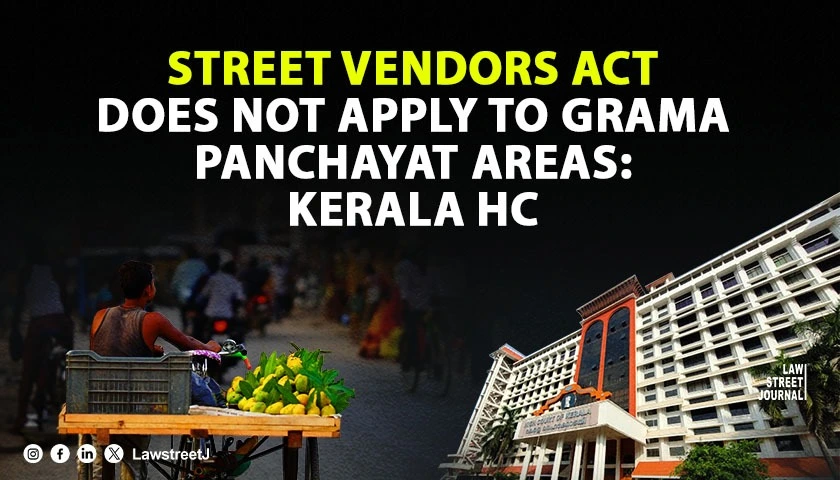Kerala: The Kerala High Court has held that a street vendor operating in a Grama Panchayat area cannot claim protection under the Street Vendors (Protection of Livelihood and Regulation of Street Vending) Act, 2014, as the statute applies only to urban local bodies.
The Court of Justice Mohammed Nias C.P. delivered the ruling while disposing of a petition filed by a 68-year-old vendor seeking a vending certificate to continue his business near the Thamarassery Civil Station.
The petitioner contended that he was entitled to a certificate of vending and the benefit of the rules and scheme framed under the Act. The Panchayat, however, maintained that the legislation did not extend to its jurisdiction and alleged that the petitioner had erected an unauthorised structure on National Highway 766, obstructing both traffic and pedestrian movement. The State supported this position, relying on the Court’s earlier decision in Sajjad v. State of Kerala (2018).
Accepting the Panchayat’s stand, the Court noted that the definition of “local authority” in Section 2(1)(c) of the 2014 Act covers bodies functioning in urban areas, and a Grama Panchayat does not fall within that category. As the petitioner’s place of business was undeniably within a Panchayat, the Court concluded that he could not invoke the provisions of the Street Vendors Act.
Since the statutory framework itself was inapplicable, the Court held that none of the reliefs sought—including a direction to issue a vending certificate or implement the rules and scheme under the Act—could be granted. At the same time, the Court left open a limited option for the petitioner: if he applies for permission to trade using a mobile cart without obstructing traffic or pedestrian movement, the Panchayat must consider such a request in accordance with law.
The writ petition was accordingly disposed of.
Case Title: Musthaffa K. v. State of Kerala & Ors.




![Kerala HC Quashes 498A Dowry Harassment Case Against Live-In Partner, Citing Lack of Relative Status [Read Order]](/secure/uploads/2023/08/lj_5693_1057c042-1e57-4e27-8c9e-25af0ec38ec4.jpg)
![Watching porn on mobile: Kerala HC highlights importance of mother cooked meals, outdoor sports [Read Order]](/secure/uploads/2023/09/lj_9155_Parental_supervision_of_mobile_phone_usage.jpg)
![Lakshadweep MP Mohammed Faizal Disqualified from Lok Sabha After Conviction Suspension Plea Rejected by Kerala High Court [Read Notice]](/secure/uploads/2023/10/lj_9640_87b5fd97-0e05-4ff8-9a99-3be1e4446192.jpg)






